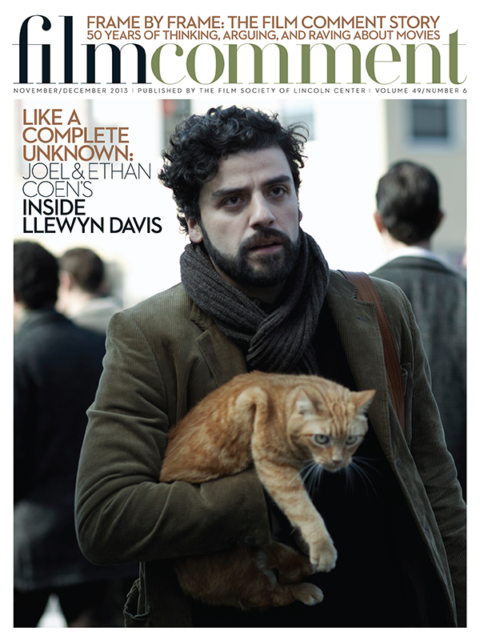Over the course of four features, Spike Jonze has become American cinema’s poet laureate of solipsism. He’s always been drawn to getting us so lost inside a character’s head that reality is experienced as a blurred, flared out, and mostly inaccessible dream-world. Jonze has gradually refined a wispy, child’s-eye style that’s been taken up by today’s American indie scene, but he also treats this perspective as a kind of straitjacket, something to be escaped from rather than indulged. Malkovich’s tagline—“Ever wanted to be somebody else?”—could apply to any of Jonze’s protagonists: trapped in their own heads, and terrified of breaking out only to get trapped in someone else’s.

Her is the most universal and most topical of Jonze’s films so far. Its premise—a lonely, recently separated man named Theodore (Joaquin Phoenix) slowly falls in love with his artificially intelligent computer operating system (voiced chattily, breathily, and in no way artificially by Scarlett Johansson)—invites all kinds of broad, zeitgeisty pronouncements about 21st-Century Man’s Relationship to Technology (which Jonze, admittedly, plays up). But Her turns out to be something closer to the bone: a scary, sobering parable about the psychological toll of loneliness.
It’s important to note that Jonze never makes Theodore an object of pity or scorn. His romance with the disembodied Samantha is as real as, if not realer than, any of the film’s human relationships: like all of Her’s dialogue, their conversations are just fluid and articulate enough to sound natural, and just clumsy enough to sound spontaneous. Credit also goes to Phoenix, playing a sensitive, puppy-doggish, caterpillar-mustached romantic whose day job consists of writing intimate letters on behalf of anonymous clients. Like many Phoenix characters, he seems a little off balance, physically and mentally, as if he’s perpetually on the brink of an eruption of violent self-loathing.

In contrast, Johansson’s Samantha seems perfect to a tee: sweet, intelligent, playful, organized. On the one hand, the movie goes to great lengths to make her more than a too-good-to be-true dream girl: much of its poignancy comes from the fact that, like Theodore, she both yearns for and fears physical contact. On the other hand, for all her free-thinking independence, she remains a direct manifestation of Theodore’s need for a perfect partner, flawless in body and spirit on account of possessing neither. The film’s punch line is that even this factory-ordered relationship turns out to be a messy, complicated thing. If previous Jonze heroes kept trying to enter into the world, only to find themselves stuck once more inside their own skulls, Theodore keeps retreating back into his head, then somehow winding up face to face with the very thing he was trying to escape: the need to commit, to let go, to open up.
The film’s whimsical, gold-tinted visual style and musical accompaniment (wistful piano lines and bouncy Arcade Fire) might be seen as a cheery corrective to or an ironic extension of Her’s dour take on modern relationships. To me, they make the movie feel a little like Theodore’s forged love letters: printouts designed to look lovingly handmade. But perhaps that’s the point. When life can be Instagrammed, prettified, soundtracked, and digitally smoothed out with a few keystrokes and mouse clicks, we may be liable to retreat still further inside ourselves. And there, Jonze hints, is where you might find your deepest possible connection: with the little voice inside your head.








